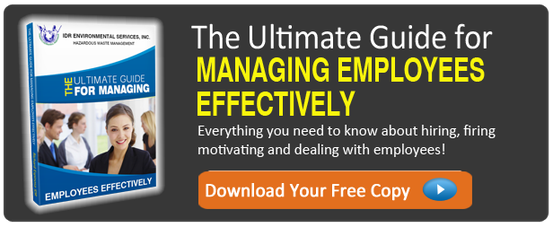Hiring and firing. There's nothing worse about being a manager or supervisor, is there? If the hassle of having to fire someone wasn't bad enough, the time, effort and aggravation associated with hiring a replacement, the right replacement, just interfere with you doing what you're paid to do:
Your job. Spending any time, never mind too much time, on H.R. matters is usually not the way to get that done. Knowing how to hire the best employees will help you keep your unproductive time to a minimum.
Before we get to specifics, there are some general things to remember when determining how to hire the best employees:
-
Take the time necessary. Or else. No matter the degree of urgency, rushing a hiring decision usually results in one thing: Having to do it again, and soon. While "getting it over with" may immediately make your job easier, any relief you feel will probably be short-lived.
-
Your ego is not your amigo... Is the candidate right for the job? Perhaps too right? Your concern is misplaced if you worry about whether your potential new hire might be good enough to do your job. Why? Because you should be looking for someone good enough to do your job. Plus, a great hire reflects positively on your judgment.
-
Your gut will lead you. If the candidate seems too good to be true, he or she probably is. If your "spidey sense" is tingling, pay attention to it. If someone just doesn't feel right, don't hire them.
All that being said, here are some suggestions on how to hire the best employees:
 Hire TO the job description, not FROM the resume. All too often we're dazzled by what we read on a resume, sure that the experience listed and skills described will meet our needs. Unfortunately this way of thinking often leads to hiring those we hope are good enough to eventually do the job instead of those who already can. Review the description for the position you're looking to fill. If the duties have changed, now's a good time to acknowledge that and screen your applicants accordingly. You want to find a good fit, not hope for one.
Hire TO the job description, not FROM the resume. All too often we're dazzled by what we read on a resume, sure that the experience listed and skills described will meet our needs. Unfortunately this way of thinking often leads to hiring those we hope are good enough to eventually do the job instead of those who already can. Review the description for the position you're looking to fill. If the duties have changed, now's a good time to acknowledge that and screen your applicants accordingly. You want to find a good fit, not hope for one.
Don’t ignore company culture. From Virgin Group founder Richard Branson, make sure that you look to find people that fit in. “The first thing to look for when searching for a great employee is somebody with a personality that fits with your company culture. Most skills can be learned, but it is difficult to train people on their personality. If you can find people who are fun, friendly, caring and love helping others, you are on to a winner.”
Anyone can talk a good game. Not everyone can play, however. There are so many resources available to job seekers that only the ill-prepared interview poorly. Applicants research companies to prepare answers to questions they think you'll ask. People literally talk themselves into a job without the employer truly knowing whether they're capable. So put your applicants to the test. Give them hypothetical problems to solve. Have them provide work samples if possible. Use whatever method you deem appropriate to evaluate technical abilities.
Do. A. Background. Check. To the extent allowed by the laws of your state. It's money well-invested. Speaking of which...
Sex and drugs and rock and roll. Again, if permitted by law, pre-employment drug screening is a great way to discourage marginal candidates from even considering applying for work with your company (and wasting your time).
Reference checks. Granted, few employers are willing to discuss former employees, much less divulge detailed information about them. Rather than rely on what you may or not be told, have your candidate detail in writing what his or her references are likely to say about them when you call. This gives the impression that you'll be referring to the notes when you call, something likely to generate less embellishment during the interview.
Knowing how to hire the best employees: Good for the company, good for you.


Comment